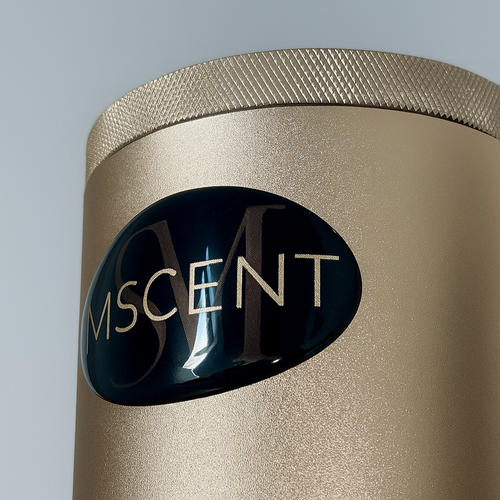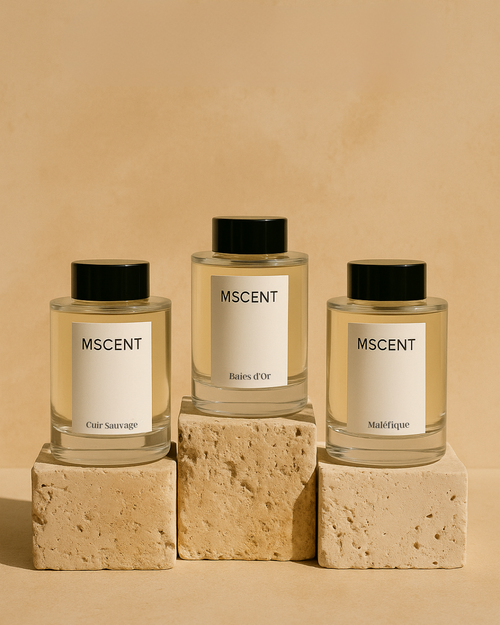Hotel
Why is it essential to install fragrance diffusers in a hotel?
Hotels are spaces where comfort, hospitality, and the guest experience are essential. A well-chosen fragrance can have a significant impact on the hotel's overall ambiance, improving guest satisfaction and perceptions of service quality. Here's why it's crucial to use scent diffusers in a hotel and why scent marketing is important in this context.
Improving the customer experience upon arrival
Upon entering a hotel, guests are faced with a sensory environment, and smell is one of the first senses to be engaged. A pleasant fragrance creates a positive and memorable first impression. Using scent diffusers can transform a simple lobby into a welcoming, serene, and refined space. For example, a light scent of lavender or fresh citrus can immediately relax guests after their trip, putting them in a more positive and relaxed state of mind.
Strengthen the hotel's ambiance and atmosphere
Each area of the hotel can benefit from a different olfactory ambiance. In the lobby, a light, soothing scent can enhance the welcome, while in the guest rooms, more subtle scents like vanilla , sandalwood , or amber can provide a more intimate and relaxing environment. Depending on the area, fragrances can play a key role in creating a unique and cohesive atmosphere. This can also reinforce the hotel's identity and position it as a place where every detail counts.
Create a calming and relaxing environment
Travelers often arrive tired or stressed, especially after long flights or journeys. A soothing scent, such as lavender , jasmine , or eucalyptus , can promote relaxation and rest. This helps improve sleep quality and make the hotel experience more enjoyable. Furthermore, the relaxing atmosphere created by the right scent can encourage guests to extend their stay or return in the future.
Mask bad odors and improve perceived cleanliness
Hotels, especially larger ones, can sometimes accumulate odors related to humidity, cooking, or other activities. Scent diffusers help mask these unpleasant odors, creating a fresher, cleaner atmosphere. Smell plays an important role in the perception of cleanliness, and a pleasant scent can reinforce the idea that the hotel is well-maintained and cared for, which is crucial for the guest experience.
Optimize the atmosphere of common spaces
Lounges, spas, restaurants, and even restrooms are important spaces in a hotel where guests spend time. Diffusing the right scent in these spaces can not only make the environment more pleasant but also enhance the overall guest experience. For example, a fresh, energizing scent in a café or restaurant can stimulate appetite and increase conviviality, while softer scents in lounges can create an atmosphere conducive to relaxation.
Why is olfactory marketing important in a hotel?
1. Strengthen the hotel's brand image
A hotel's olfactory identity becomes a key element of its brand image. Guests often associate the scent of a place with specific emotions. By creating a signature scent, a hotel can distinguish itself from other establishments and leave a lasting impression on guests. For example, a luxury hotel might opt for refined scents like sandalwood , rose , or patchouli , while a more casual hotel might choose fresher, lighter notes. This signature scent contributes to the hotel's identity and recognition .
2. Create memories and improve customer loyalty
The sense of smell is strongly linked to memory and emotion. A pleasant and unique scent creates powerful sensory memories that stay with guests. Subsequently, each time a guest encounters this scent, they will recall their experience at the hotel, strengthening their loyalty. Olfactory marketing therefore creates an emotional connection with the hotel, encouraging guests to return and recommend the establishment to those around them.
3. Positively influence customers' mood
Scents directly influence guests' moods. For example, scents like peppermint or lemon can boost energy and alertness, while scents like vanilla or lavender promote relaxation and tranquility. By choosing specific scents for each area of the hotel, the property can strategically direct guests' emotions and moods, optimizing their experience. This can also foster a relaxing atmosphere in guest rooms, especially for extended stays or guests seeking a feel-good environment.
4. Differentiate the hotel from the competition
Competition in the hotel industry is fierce. To stand out, it's essential to offer a unique and memorable experience. Olfactory marketing allows a hotel to stand out by creating a specific sensory atmosphere that's difficult for competitors to replicate. By installing scent diffusers that create a unique ambiance, the hotel becomes a place where guests can not only relax but also immerse themselves in a complete sensory experience.
5. Boost sales in commercial spaces
Hotels often have commercial spaces such as restaurants, shops, or bars. Scent can influence guest purchasing behavior. For example, warm, gourmet scents in a restaurant can stimulate appetite, encouraging guests to stay longer and spend more. Similarly, a pleasant fragrance in the hotel's shops can encourage passengers to make purchases. Scent marketing thus creates an experience that goes beyond simple accommodation and helps generate additional revenue.
Conclusion
Implementing scent diffusers in a hotel is essential for delivering an exceptional guest experience. Not only does it improve the overall atmosphere by reducing stress, improving the perception of cleanliness, and strengthening the brand image, it also creates a lasting emotional connection with guests. Scent marketing is a powerful tool in the hospitality industry, helping to differentiate a property, boost guest loyalty, and positively influence their emotions and behavior. In short, scent is becoming an essential component of the guest experience, helping to make every stay unforgettable.






